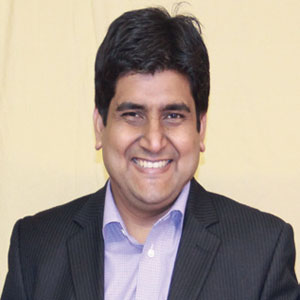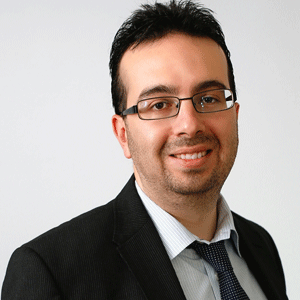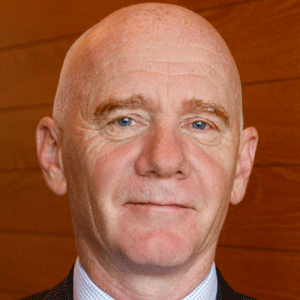THANK YOU FOR SUBSCRIBING

Will Finance Automation Prove to be the Merger of the COO & CFO Roles?
Amit Agrawal, Delivery Manager, NTT Data


Amit Agrawal, Delivery Manager, NTT Data
Introduction
If ‘intelligent automation’ (machines) were people, then would they easily get on the executive fast-track program in an organization and stand to get promoted before anyone else?
It goes without saying that they do work harder, learn faster, cost less, and are full of limitless untapped potential. We experienced something similar during the industrial revolutions of the 18th and 19th centuries, where mechanization enabled us to overcome the limitations of our own muscle power.
Now two hundred years later (Industry 4.0), thanks to the virtue of new automation technologies, we are in the early stages of a similar revolution where it comes to our mental capacity.
In this article, we will discuss how automation can affect the role of the CFO / COO in an organization.
However, let’s first gain a deeper understanding of what we mean by ‘intelligent automation’.
‘Intelligent Automation’
Today’s organizations are upping their competitive game using various forms of intelligent automation such as chatbots, virtual assistants to Robotics Processing Automation (RPA). Being available 24/7, ‘Intelligent Automation’ is transforming the way we operate.
The combination of Artificial Intelligence (AI) and automation (RPA) is called ‘Intelligent Automation’. In short, it can not only mindlessly reproduce any manual activity (automation) but just like humans, also make intelligent decisions (AI) such as the checking of errors/exceptions, based on dynamic information.
Hence, they have an ‘understanding’ of your business processes and variations which they take into account when executing automated business process validation to verify that the right business outcome has occurred.
The ‘finance’ function and its current challenges?
The finance function is about managing inflows and outflows to improve the bottom line. The entire journey starts by getting an accurate view of the amount spent and earned and then devising a financial plan to achieve financial goals.
A financial plan is then executed and monitoring/controlling begins to ensure that the organization sticks to the plan. One can do year-on-year comparisons or compare against a benchmark to check the performance of the organization over a period of time. The major challenge of all this lies in legacy systems and process quality and availability of data as well as skills/talents availability.
So, instead of focusing on strategic initiatives like analytics, CFO’s are usually overburdened with mundane tasks such as data collection. An EY survey further validated this point when it revealed that 56% of global CFOs cannot focus on strategic priorities due to too much time spent on compliance, control, and cost initiatives.
Why the finance function is ripe for automation
The finance function has long been data-driven and the availability of dynamic, real-time planning as well as attaining data from various data sources has always been missing. In spite of this, it has always played a major role in driving the direction of the business.
That is why C-suite and different departments of the organization like sales, marketing, HR, and operations look to finance to provide them with raw data or sophisticated analysis to understand the inflow/outflow of cash.
Automated ERP/CRM systems provide a lot of structured data about customers, employees, product, and sales but it still does not provide a complete picture. For example, unstructured data sources such as social media, which provide additional insights, are still missing.
The finance team always struggled to keep pace using spreadsheets and manual methods. Without automation, this leaves little time for analysis and strategic recommendations; therefore, making it a major challenge area.
How the CFO role will be impacted due to finance automation.
CFO’s are responsible in areas like planning, budgeting, forecasting, financial reporting, accounting, allocations/adjustments, and reconciliation transactions for the organization.
In short, the CFO plays the role of strategist, catalyst, steward, and an operator. Currently, most CFO’s are lumbered with mundane tasks such as collecting data rather than spending time on analyzing it.
As per the EY report, 80 percent of the CFO’s tasks can be automated. Technology (Intelligent Automation) will provide them viable options to automate the collection of data.
Thus, automation, AI, consolidation of data (across different sources like social sites) using big data and the growth of data analytics capabilities has become a reality.
The availability of this data in real time will mean that organizations may not require a monthly or quarterly close process. Actuals/forecasts will be generated instantly and made available to ‘related’ stakeholders or department heads resulting in decisions being made in a timely manner. The continual tracking of sales, cash flows, inventories, and more will become the norm. Hence, automation will result in the CFO of the future to be looked upon as a provider of deeper, real-time insights which create operational value.
The role of the Chief Operating Officer (COO) in the organization?
As per the definition from Keith Rabois, former COO of Square, “the COO is like a ‘doctor’ in the emergency room, constantly fixing things, training, and diagnosing issues to determine if they are minor or potentially fatal”.
The exact job description of the COO changes from company to company and CEO to CEO.
Specialized skills are required for the role of COO which usually is a mix of strategy and execution, with the overarching purpose of making the ‘business’ run smoothly while assisting the CEO in refining and realizing his vision.
The COO is a key advisor to the CEO and has a good understanding of the business operations of the organization. Therefore, it is very important for the COO to understand key drivers. The majority of the advanced analytics like hedging against volatility will be easily available due to advance in technology (AI & machine learning). It will also help him (COO) to predict future trends, manage risks, and respond faster, with greater insights.
Can COO also be CFO?
CFO always tends to think of ‘technologies’ as a cost center.
As per the EY survey, the CFO has barriers in terms of understanding of ‘IT and digital’. In the new world of AI however, CFO’s need to be IT/ digital (technical) savvy.
As per the demands of their role, COO’s are usually required to be visionaries, digitally savvy and very forward-thinking. Therefore, it is much easier for the COO to adopt new technologies and optimize the organization’s resources.
By merging both the roles of the CFO and COO, there will be cost savings in terms of logistics and business operations. For example: if any financial data is required, instead of calling the accountant, the COO can directly access the data themselves.
Another advantage will be that the CFO/COO will have a full understanding of the financial/ operational situations which will help them to take strategic decisions and avoid internal conflicts. This way, they will have a better understanding of the pulse of the organization as well as the key drivers of the business and how they are interrelated. This may be the reason why a lot of companies have recently merged both the roles into one.
Conclusion
On the whole, I believe that ‘intelligent automation’ will not make the CFO’s role completely obsolete, provided that they adapt well to the changes. In fact, its introduction will compel the profession to become more creative.
Weekly Brief
I agree We use cookies on this website to enhance your user experience. By clicking any link on this page you are giving your consent for us to set cookies. More info
Read Also
Artificial Intelligence - Myths And Truths
Sustainable Future through Innovative Technology Solutions
The Future Relies on Augmented AI
Digitalization with the use of digital technologies/Improving business through digital technologies
How Marco's Pizza Leaned On Technology To Succeed Amid The Pandemic By Quickly Pivoting To Contact-Free Delivery And Curbside Carryout
Bunnings Diy Digital Transformation
For a Smarter City: Trust the Data, Ignore the Hype
Artificial Intelligence Enriches Personalized Experiences





















